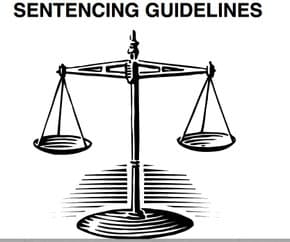Sentencing in New Jersey

If you are found guilty of committing an offense in a New Jersey Superior Court, then you will face a judge for a sentencing hearing. Judges consider many factors when rendering their final judgment on sentencing. The New Jersey Code of Criminal Justice often stipulates recommended sentences or provides a range of years of imprisonment subject to the discretion of the judge. At a sentencing hearing, the judge considers character references in the form of letters or testimony at the hearing from close family, friends, and community members, as well as aggravating and mitigating factors as defined by law.
Aggravating Factors:
- Nature and circumstances of the offense, including whether or not it was committed in an especially heinous, cruel, or depraved manner;
- Gravity and seriousness of harm inflicted on the victim, including whether or not the defendant knew or reasonably should have known that the victim of the offense was particularly vulnerable or incapable of resistance;
- Risk that defendant will commit another crime;
- Breached public trust or took advantage of a position of trust or confidence to commit the offense;
- Involved in or likely involved in organized criminal activity;
- Prior criminal record and the seriousness of prior convicted offenses;
- Committed the offense pursuant to an agreement that he either pay or be paid for the commission of the offense;
- Committed against a police or other law enforcement officer or public servant
- Involved fraudulent or deceptive practices committed against any department or division of State government;
- Need to reinforce the serious nature of the offense to deter illegal business practices if fines and penalties would not be enough;
- Committed the offense against a person who he knew or should have known was 60 years of age or older, or disabled;
- Used or was in possession of a stolen motor vehicle during commission of offense;
- The offense involved an act of domestic violence and was committed in the presence of a child under 16 years of age; and
- The offense involved an act of domestic violence and the defendant committed at least one act of domestic violence on more than one occasion.

Mitigating Factors:
- Conduct neither caused nor threatened serious harm;
- Defendant did not contemplate that his conduct would cause or threaten serious harm;
- Acted under a strong provocation;
- Substantial grounds tending to excuse or justify the defendant’s conduct, though failing to establish a defense;
- Victim of the defendant’s conduct induced or facilitated its commission;
- Defendant has compensated or will compensate the victim of his conduct for the damage or injury that he sustained, or will participate in a program of community service;
- No history of prior delinquency or criminal activity or has led a law-abiding life for a substantial period of time before the commission of the present offense;
- Result of circumstances unlikely to recur;
- Character and attitude of the defendant indicate that he or she is unlikely to commit another offense;
- Likely to respond affirmatively to probationary treatment;
- Imprisonment entails excessive hardship to defendant or his/her dependents;
- Willingness to cooperate with law enforcement authorities;
- More mature defendant substantially influenced the conduct of a youthful defendant.
If you are facing a criminal charge in New Jersey, you should have an attorney on your side fighting for you. Our experienced attorneys at the Law Office of Sara McArdle practice throughout Northern and Central New Jersey. To schedule a free initial consultation to discuss your legal options, call our office at 973-366-5244.
